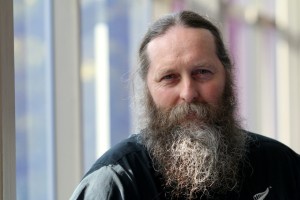University of Aberdeen part of transdisciplinary hub looking to bridge the gap between science and policy to achieve Net Zero
- The University of Aberdeen is member of a winning consortium of 34 organisations awarded a £6.5 m government grant to establish a ‘Land Use for Net Zero’ (LUNZ) Hub.
- The LUNZ Hub aims to provide all four UK administrations with the rapid evidence they need to develop policies that will drive the UK land transformation required to achieve Net Zero by 2050.
- Consortium includes experts from research, farming and industry across issues including green finance, renewable energy, planning, soil health, afforestation and water management.
- The announcement comes as the LUNZ hub is launched at an event in Leicester today (16 January).
- Professor Pete Smith from the University of Aberdeen will co-lead the Soil Health and Carbon Dynamics Topic Advisory Group.
A first of its kind consortium of 34 leading research and stakeholder organisations has been established to help all four UK administrations address land use and agriculture as a major greenhouse gas emitting sector.
The “Land Use for Net Zero” (LUNZ) Hub, co-led led by The James Hutton Institute and the University of Leicester, with £6.5 million funding from UK Research and Innovation, will provide UK and devolved nations timely evidence around land use, from renewable energy to soil carbon and green finance, to help drive the land transformations needed to achieve net zero by 2050.
It will also play a pivotal role in helping to communicate more widely the critical importance of land and how it’s used as a major carbon sink or source.
Agriculture and land use have a major impact on greenhouse gas (GHG) emissions, as well as a wide range of other environmental, societal and economic outcomes, but progress towards decarbonisation is lagging behind other sectors.
The declaration recently announced at COP28 on sustainable agriculture, resilient food systems and climate action states the UK government’s intent to act on land use and climate change by increasing public financial support and scaling science-based solutions, and LUNZ will be a key conduit for these actions.
Achieving the transformational change in land management needed will depend on government access to world-class research and innovation and a novel approach to collaboration across a variety of critical stakeholders.
Hub co-lead of the winning Consortium, Professor Lee-Ann Sutherland (The James Hutton Institute), explained:
“The science behind land use is highly complex. It is influenced by a range of economic, social and environmental factors, and complicated further by a changing evidence base, novel market forces, the emergence of new data and models, and disruptive technologies such as artificial intelligence. Our aim is to bridge the gap between researchers and policy makers and our work will be focused on meeting specific policy-maker needs, giving them the evidence they need in the format and timeframe they need it.
“Our Consortium has developed a series of innovative mechanisms to do just that – an Agile Policy Centre, Net Zero Futures Platform, and Creative Methods Lab – each tailored to generate clear, robust answers to urgent questions.”
Equally novel is the approach to stakeholder participation in the Hub, as Hub Co-lead, Professor Heiko Balzter (University of Leicester), explained:
“Creating a fair, realistic path to Net Zero in the land use sector can only be achieved with the involvement of a wide range of stakeholders throughout the process– to provide their expertise, share the Hub’s outputs and ensure its proposals work in practice as well as theory.
“Our consortium reflects this – ranging from those at the cutting edge of climate change modelling to farmers groups, advisory organisations, non-governmental organisations and an arts collective. Their range and profile will ensure the Hub’s impact extends throughout society – so everyone can engage in land use transformation – from the food they buy to their holiday, housing and investment decisions.”
At the heart of the challenge is understanding how transformative change can be achieved and predicting the impact of proposed approaches against multiple environmental, societal and economic outcomes. A central strand of the Hub’s approach will be the development of plausible and innovative net zero scenarios and associated pathways – novel tools based on advanced modelling methodologies that can predict the impacts of different policy interventions across a variety of metrics.
Professor Pete Smith from the University of Aberdeen added: “I m delighted to be the Soils co-lead for this important Hub, and I am very pleased that the role of soils is rightly seen as central to establishing sustainable land use to help us meet our Net Zero commitments. My role will allow me to bring the University of Aberdeen’s world class expertise in Soil Science to the Hub, for the benefit of governments, farmers and land managers as they transition to Net Zero.”


